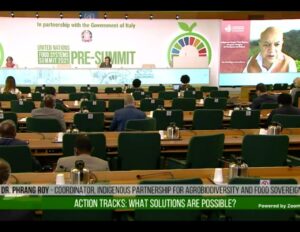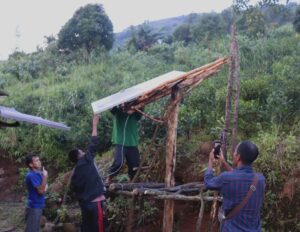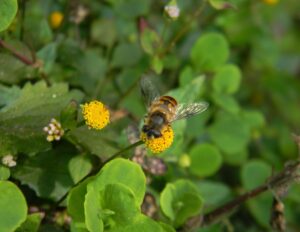Written by Bajanai Diengdoh and Abhigyan Chakravorty
An Indigenous Youth Fellowship Programme at the local level was conducted for a period of one month in April this year; it stried to empower local communities to acknowledge the Indigenous Food Systems (IFS) and simultaneously to safeguard and preserve the agricultural practices for the overall well-being of the communities. The follow-up to this Programme was a revelation in itself and proved that with an undying spirit, we can actually achieve the goals we strive for.
Actions Taken by our Indigenous Youth Fellows
Having understood the true importance of the Indigenous Food Systems through the programme, Kong Aquiline Nongrum (from Mawkma, East Khasi Hills) facilitated an awareness programme to highlight the need to escalate food crops which exist in the village area. The participants inculcated similar sentiments and decided to preserve the same, going forward. She expressed,“It is inspiring to see that people of my community have agreed to start collecting and preserving the lost variety of seeds to ensure food security in the village.”
A training on the process of making traditional medicine to kill pests, facilitated by Wankit Nadon (Research Assistant of NESFAS), as a part of the Youth Fellowship Programme inspired Kong Bianglin Nongbet of Nongwah, East Khasi Hills, to organise a programme within her community to spread this knowledge among community members who agreed to practice it in their own gardens. A training was also conducted at Laitsohpliah, East Khasi Hills, by two fellow members of the community on the management of pests using traditional methods. Bah Nestar Kharmawphlang, a school teacher and farmer from Laitsohpliah said, “I have already practiced this method and it really works.”
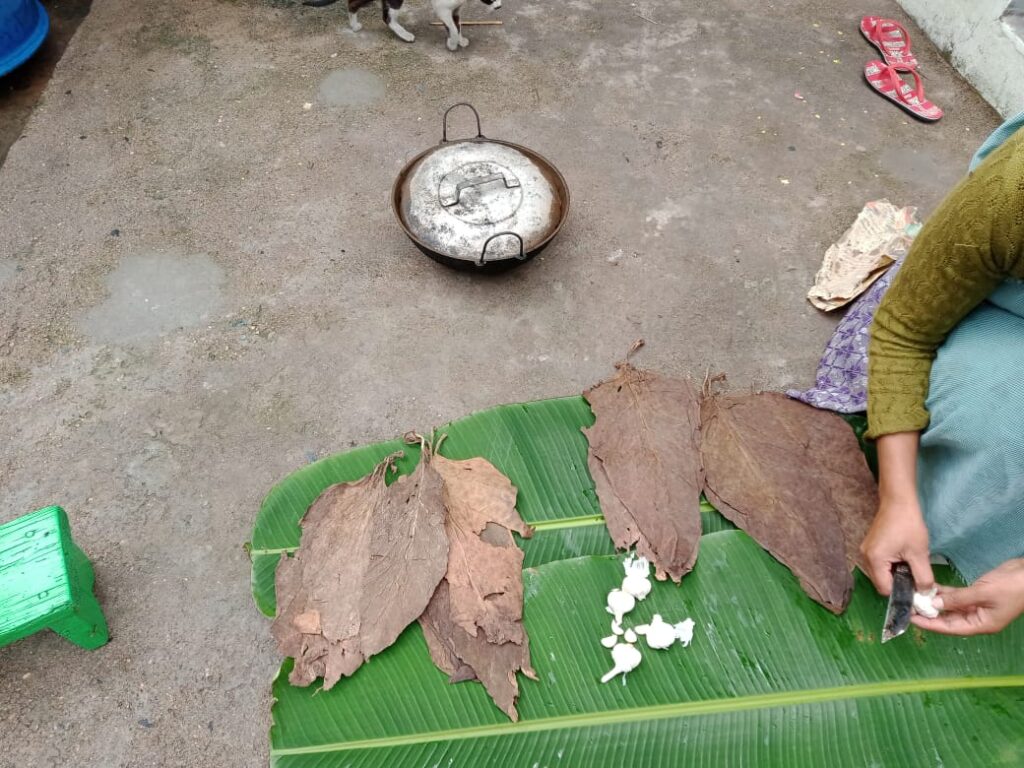
Fellow of the Samingre community, West Garo Hills, Faira Norime Ch Marak took the initiative to train Self Help Groups (SHGs) on compost making for the management of soil health. Women empowerment and gender equality was discussed at Ladmawphlang village (East Khasi Hills); this discussion highlighted and reinforced the importance of the role of women in the holistic development of the community. After the narration of a personal anecdote by Kong Sita Mary Nongrum (ASHA and PGS group member) on the topic, fellow members truly understood the vitality of women in decision making; this inspired them to take on this topic to the village leaders and be more inclusive.
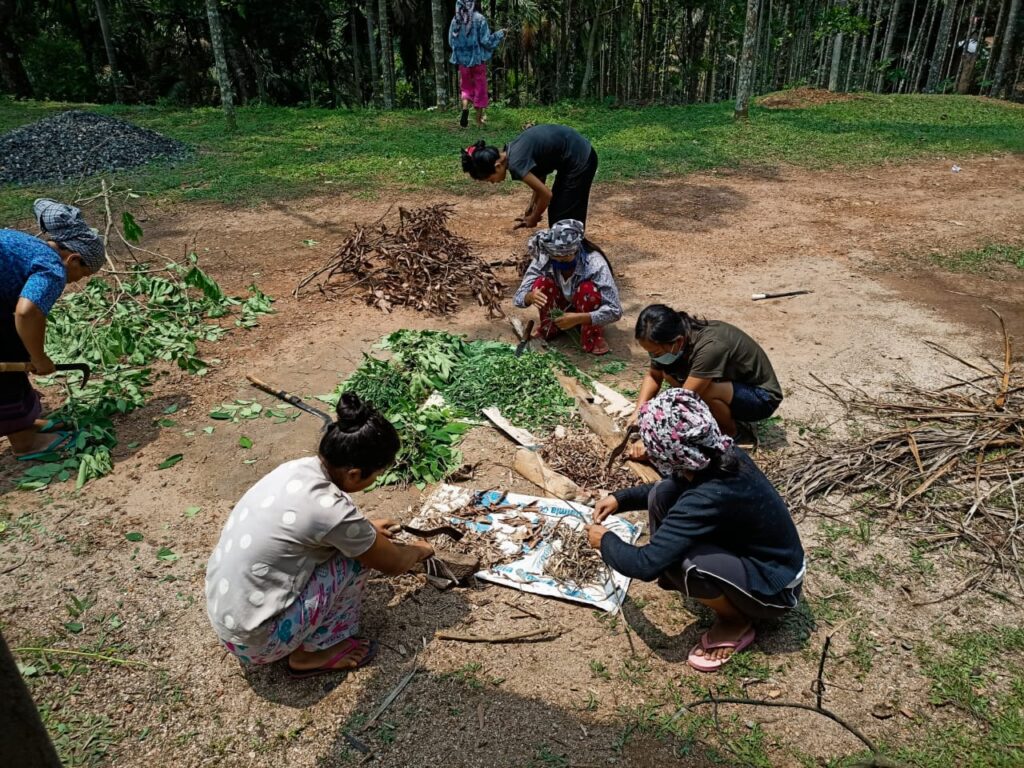
Bah Sisarius Phang Cho (fellow of Umwang Nongbah, Ri-Bhoi) took an initiative to train the farmers in his village to manage pests using traditional methods and compost making for increased soil health. They learned the process during the Fellowship Programme trained by Wayoo Talang and Wankit Nadon (Research Assistants of NESFAS).
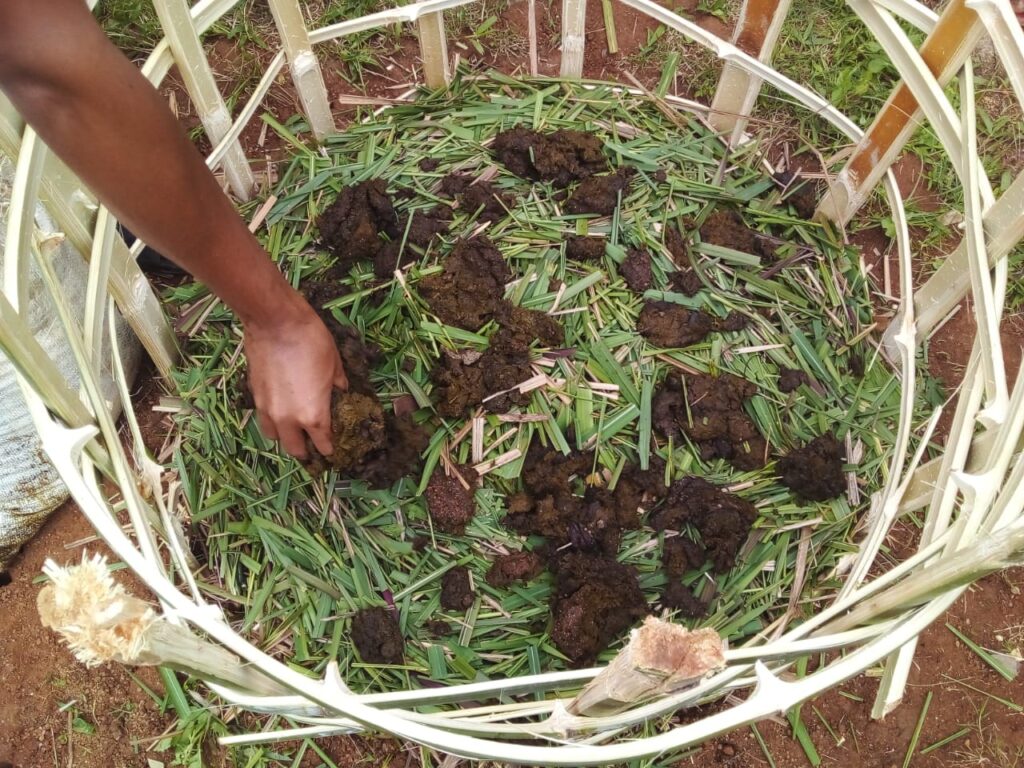
An activity was conducted at Umsawwar (East Khasi Hills) on fencing of community gardens led by two fellows, Micheal Mynsong and Pynhunlang Nongrum who understood the concept of Agroecology and IFS during the Fellowship training. They took the initiative by engaging other youths in community fencing. Natural fencing and live fencing are ways to avoid animal disruptions in the community garden. Kelamon Suting, Secretary of Youth Club of Umsawwar mentioned, “In this garde,n we must plant wild edibles, fruit trees and green leafy vegetables such as Jaud and many more.”
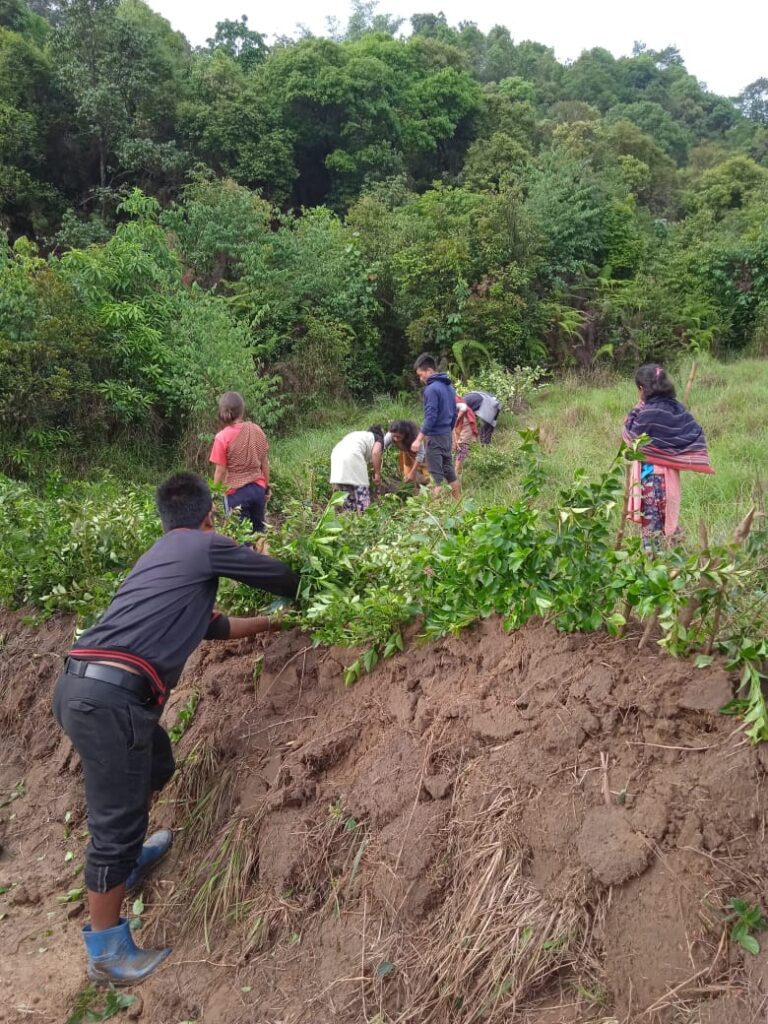
Bah Vincent Timung from Belkuri, Ri Bhoi was inspired by the teachings in the Youth Fellowship programme and decided to start a small business; he established a small poultry farm in the village which he believes will grow and develop in the years to come and possibly also yield enough to start an adjoining butcher shop.
The youth needs to be sensitized to the vulnerability of IFS in their region; the Indigenous Youth Fellowship Programme at the local level did a great job at not just informing people but also, bringing about some actual change; it is clear from the above that 8 communities have been positively affected by the outcomes of the programme; therefore, this gives all of us enough incentive to strive forward with confidence as we empower the youth to protect these age-old practices.

